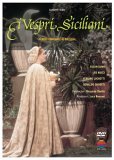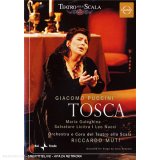![Schubert - Alfonso Und Estrella (Mai, Trost, Muff, Werba) [2004]](/pictures/1072166.jpg) Schubert - Alfonso Und Estrella (Mai, Trost, Muff, Werba) | DVD | (03/01/2005)
from £4.25
| Saving you £17.00 (568.56%)
| RRP
Schubert - Alfonso Und Estrella (Mai, Trost, Muff, Werba) | DVD | (03/01/2005)
from £4.25
| Saving you £17.00 (568.56%)
| RRP Most of Schubert's operas were written without a specific commission in the hope that once completed some theatre might find them interesting simply by virtue of their musical value. This unrealistic optimism proved almost always wrong and Schubert suffered bitter disappointments very often working for nothing. Begun on 20th September 1821 Alfonso und Estrella was completed on 27th February 1822 but was first staged on the initiative of Franz Liszt only in 1854 after Schubert's death. Alfonso und Estrella has the characteristic climate of a Romantische Oper. If it is true that Schubert lacks the sense of theatre which is typical of the best operatic composers of his day (for example Weber) the power of his creativity and beauty of many arias cannot be denied.
 I Vespri Sicilani | DVD | (30/05/2005)
from £16.75
| Saving you £1.24 (7.40%)
| RRP
I Vespri Sicilani | DVD | (30/05/2005)
from £16.75
| Saving you £1.24 (7.40%)
| RRP Luca Ronconi's highly acclaimed production of Verdi's rarely performed opera I Vespri Siciliani was recorded at the Teatro Comunale di Bologna in 1986. American soprano Susan Dunn sings the demanding role of Elena. Equally powerful are the performances of Leo Nucci as Guido di Monforte the great romantic tenor Veriano Luchetti as Arrigo and Bonaldo Giaiotti in the challenging role of Procida. The cast also includes a young Anna Caterina Antonacci as Ninetta. This good looking production is conducted incisively by Riccardo Chailly.
![Puccini: Tosca -- La Scala/Muti [2000]](/pictures/1028427.jpg) Puccini: Tosca -- La Scala/Muti | DVD | (02/12/2002)
from £3.34
| Saving you £22.91 (1,101.44%)
| RRP
Puccini: Tosca -- La Scala/Muti | DVD | (02/12/2002)
from £3.34
| Saving you £22.91 (1,101.44%)
| RRP Tosca was revived to great acclaim at La Scala in this 2000 production, which built on Luca Ronconi's 1996 version with musical direction from principal conductor Riccardo Muti and Lorenza Cantini's nightmarishly distorted set. Puccini's most recorded opera is loved and derided in equal measure for its high-octane dramatics, rich arias and the fire-spitting exchanges of the eponymous heroine and her wily tormentor Scarpia. Under Muti, the music takes precedence over the self-conscious theatricality of the book. As a result, some high dramatic points--the stabbing, always tricky, and Tosca's suicide, equally dicey--are underplayed here. Singers of the calibre of Maria Guleghina and baritone Leo Nucci can be relied upon for rounded, controlled performances. Guleghina eschews the ferocity of Callas for a less stately, earthier honesty and enjoys moments of great delicacy, particularly in a sweet "Vissi d'arte". And her grief at Cavaradossi's death is searing. The key to Tosca, though, is the ambivalent relationship between the singer and the chief of police. Scarpia is probably the most toxic antihero in opera, and Nucci could do with a touch more virulence. Even so, this is a fascinating production that strips away much of the traditional artifice and gives real insight into the complex emotions that make the opera so compelling for its devotees. On the DVD: Tosca, like so many operas recorded in the theatre, here relies on the performances to compensate for the camera's inability to convey the overall majesty of the production. The 16:9 anamorphic picture format gives no more than a hint of the crushing power of Cantini's set. Happily, the choice of Dolby Digital 5.1 or DTS 5.1 surround sound means there is no compromise on the sound front. Orchestra, chorus and principals unite in a fluid homage to Puccini's score. There are no extras on the DVD. One minor niggle: careless editing of the booklet notes means that Puccini briefly becomes Verdi in the description of the opera's genesis. --Piers Ford
![Verdi: Macbeth [2000]](/pictures/1028717.jpg) Verdi: Macbeth | DVD | (29/01/2001)
from £N/A
| Saving you £N/A (N/A%)
| RRP
Verdi: Macbeth | DVD | (29/01/2001)
from £N/A
| Saving you £N/A (N/A%)
| RRP One of the best of Verdi's earlier operas, Macbeth has a distinctive energy to which, in this performance, conductor Sinopoli gives full rein. His excellent chorus--terrifyingly skittish witches, mournful exiles, sinister-facetious murderers, outraged and vengeful courtiers in the aftermath of Duncan's murder--is as much a participant as the principals, and the orchestral accompaniment reminds us that what the young Verdi lacked of his later subtlety he made up in sheer vigour. Renato Bruson is an extraordinary Macbeth, caught in a nightmare of his own making and unable to find release save through further killings and eventually self-destruction; Maria Zampieri has the sort of voice Verdi specified and which many productions avoid, a voice prepared to give its all, not to any sort of lyric beauty but to a harshness that is dramatically appropriate--this is a fine characterisation. Dennis O'Neill has comparatively little to do, but makes his vengeance aria a memorable reminder that guilt and shame are not all that this opera is about. --Roz Kaveney
![Verdi - Falstaff [2006]](/pictures/1068596.jpg) Verdi - Falstaff | DVD | (29/01/2007)
from £33.73
| Saving you £-8.74 (N/A%)
| RRP
Verdi - Falstaff | DVD | (29/01/2007)
from £33.73
| Saving you £-8.74 (N/A%)
| RRP Falstaff - Giuseppe Verdi.
 Puccini - Tosca (Muti, Orchestra Del Teatro Alla Scala) | DVD | (05/02/2007)
from £22.94
| Saving you £2.05 (8.94%)
| RRP
Puccini - Tosca (Muti, Orchestra Del Teatro Alla Scala) | DVD | (05/02/2007)
from £22.94
| Saving you £2.05 (8.94%)
| RRP 
Please wait. Loading...
This site uses cookies.
More details in our privacy policy